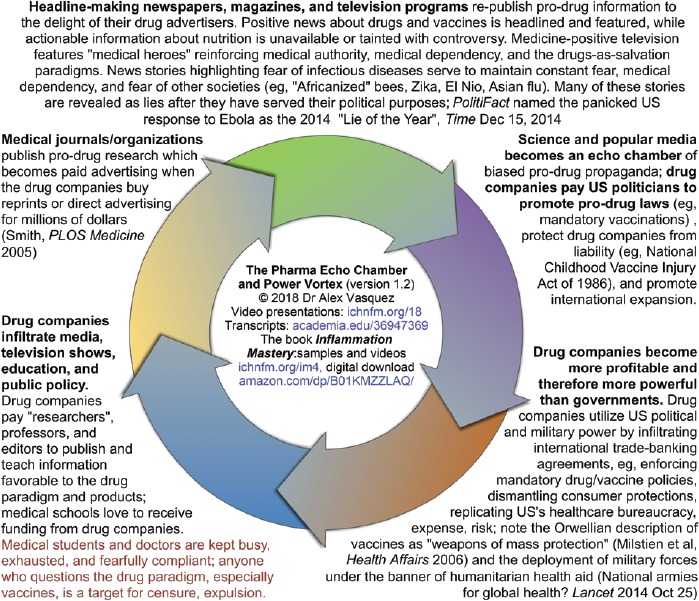Figure 1.

The pharmaceutical-journal-news echo chamber: Medical journals have inherent biases to publish pro-drug and anti-nutrition articles, both to please their pharmaceutical sponsors and to maintain their pharmacocentric paradigms. Newspapers and television repeat the conclusions from medical journals, thereby dispersing the information to hundreds of millions of persons. Television shows also glorify medicine and drugs in programs featuring “medical heroes” ranging from Doogie Howser MD to MASH to House MD. As the drug paradigm is strengthened financially and socially, drug companies have more money to buy more political influence (ie, transitioning from “echo chamber” to “power vortex”), including directly paying politicians to pass drug-friendly protective laws and mandatory drug requirements. Influence from the pharmaceutical and processed food industries is noted in international policies determining use of (for example) vaccines, genetically modified foods, and breast feeding. Meanwhile, medical professionals are kept overly busy, burnt-out, and untrained in nutrition, thereby leaving them vulnerable to misinformation, especially in nutrition. Drug companies pay for and “supervise” research via universities, while also paying textbook authors, journal editors, and medical societies that publish treatment guidelines.
